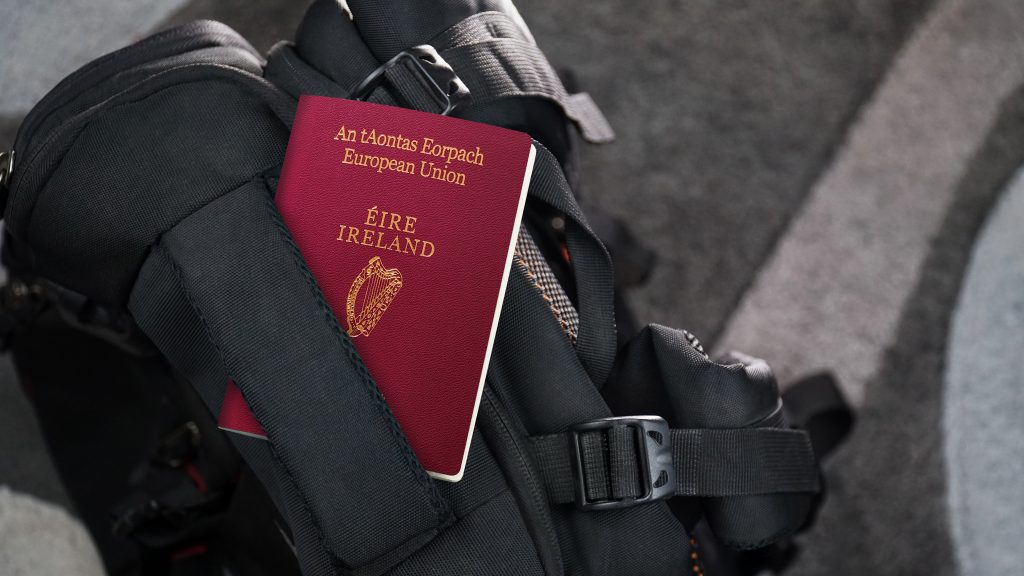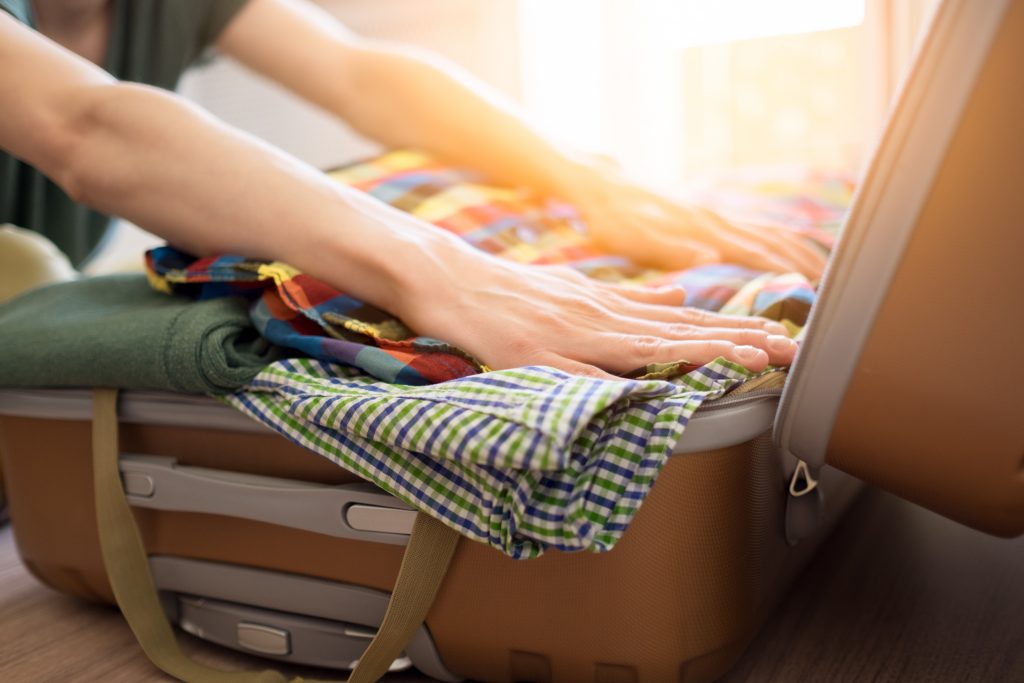In a new series, Cannabis Health News talks to people who have experienced emigration in search of safe, legal cannabis access.
Our previous stories have focused on the difficulty of packing your entire life into boxes and emigrating with your family to a new country for access. However, there is another side to emigration: the potential for return.
What happens once you are a medical cannabis patient in another country and need to travel home?
The returning Irish from emigration in the past few years has hit record numbers. As people settle into life away from home, it gets harder to return. Travel options have never been easier with several flights to and from Ireland daily from all over the country, ferry options and failing that, zoom calls are a vast improvement on Skype.
COVID lockdowns meant that it’s been a difficult year for travel. Families who have experienced emigration may not have seen in their families since the beginning of the crisis. Now thanks to vaccines, travel is starting to become a possibility again.
This leaves medical cannabis patients in a confusing situation. What do you do if you have a prescription in one country yet need to go to another?
Joe’s story
This is the situation *Joe is in. This is not his real name but he has asked to remain anonymous due to the persisting negative attitudes towards cannabis which he is prescribed for debilitating arthritis.
“I have since the age of 14 suffered from debilitating rheumatoid arthritis. I also suffer from sciatica. I played rugby six days a week for my school, worked on the family farm and lived a full and normal life. My body then changed and while initially my shoulders were affected but then my knees. It felt like someone was trying to tear my arms from their sockets and that I had broken glass in my knees. That was 36 years ago.”
Arthritis is a common condition that causes pain and inflammation in a person’s joints. Osteoarthritis and rheumatoid arthritis are the two most common forms of the condition. It can start when a person is between 40 and 50 years old although it also affects children and teenagers.
In rheumatoid arthritis, the body’s immune system targets affected joints causing pain and swelling. The outer covering of the joint is the first place to be affected before it spreads across the joint leading to further swelling and a change in shape. This may cause the bone and cartilage to break down. People with rheumatoid arthritis may also develop problems with other tissues and organs.
The Irish Children’s Arthritis Network (iCAN) estimates there are over one thousand children and teenagers currently diagnosed with juvenile arthritis.
Emigration return
Emigration in Ireland soared in the 1980s as a result of a harsh recession and lack of jobs. It is estimated that during the ten years of the 1980s, 206,000 more people left Ireland. Like a lot of Irish teenagers unable to find work and looking to leave home, Joe decided to leave Ireland for the UK. While working on a building site, he encountered other workers using cannabis.
“Although I had my condition to contend with it, my symptoms were at their worst in autumn and winter and I went to the UK in the summer to work on building sites (I had no idea my short visit would last 33 years and counting.”
“I was brought up in Ireland with typical conservative social values. Many fellow workers on site were smoking cannabis but I had no interest and indeed felt it was both inherently morally wrong as well as being illegal.”
“For months my fellow workers would say to try some. I relented when we were out together one night as I had a few drinks so my guard was down. I smoked some cannabis. I was violently ill. I did not know that smoking cannabis with drink would have such an immediate and obvious effect.”

Emigration, cannabis and pain
Joe began to feel more pain as winter began and his joints reacted to the cold. Despite his illness the first time, he tried cannabis again and noticed an effect on his pain levels. His quality of life began to improve and he started to make positive changes.
“I tried cannabis again a few weeks later and by this time the winter was in full flow and my bones were aching. I noticed that I was in less pain when I took it. I prayed for guidance on the issue and felt it was not a sin for me to use cannabis because it was helping to alleviate my symptoms.”
“I then started to use cannabis more frequently. When I reached 19, I no longer needed to take my Voltarol Retard prescription and I was able to cancel an appointment for gold injections. As my condition had relented I was able to reengage with my passion for sport and would swim a mile per day, cycle to and from work and work as a scaffolder during the day.”
“I studied A levels at night school. I returned to studies as I felt if my condition worsened I would not be able to engage in physical labour and I also had a calling to be a lawyer. Anyone who has handled scaffolding tube on a cold winters day will also understand why I felt a move indoors could be a welcome change.”
Joe did well enough in his A levels to gain a place to study law at university. He qualified as a solicitor and worked at one of the top regional practices in the country. He had the honour of meeting Irish President Mary McAleese on one of her trips to Manchester. He credits being able to live such a full life to the benefits of cannabis.
Breaking the law
However, he was starting to worry about what could happen if his use was to become public knowledge. Especially as someone working in law.
“Cannabis had managed my condition so effectively that I was able to play football for the corporate team and had no outwards signs which could not be dismissed as being down to simple stiffness. I was concerned however that should my use of cannabis become public knowledge my career would be brought to an abrupt end.
“I was leading a double life – cannabis at the time was dismissed as having no medical use and I was afraid no-one would believe me if I said I was taking it for my arthritis.”
Joe stopped using cannabis for three years as he became fed up with breaking the law. He had also noticed attempts to change the law in regards to medical cannabis and wanted to see if he could access it legally. But his symptoms flared up as a result of him stopping his treatment.
“During my cannabis break however my arthritis flared up with a vengeance. Although now prescribed methotrexate, sulfasalazine and naproxen. During my near 30 year use of cannabis prior to this point, I needed no other drugs. Significant bone erosion occurred in this 3 year period.”
“My hands and feet were badly affected and I was unable to form a fist with either hand for about 2 years. I had to stop playing classic guitar. In addition to studying law, I also studied music and played guitar in ensembles and gave performances with others in my spare time so losing the ability to play was quite hard to take”
Joe was delighted when his prescription for cannabis was approved. After taking it for about a year, he found his condition far more under control and began to come off some of the drugs he had been prescribed. He was also able to play the guitar again.
One of the biggest things, he notes, is the feeling of being able to access his medication responsibly and not break the law.
“Cannabis, for me, does have limitations. Once I take it, I won’t drive for the rest of the day. It can give me mood swings although nothing too extreme. I can be grumpier in the mornings. I am mindful that all drugs have their side effect. I am losing my hair due to methotrexate which gives me a number of bladder issues as well as nausea.”

Emigration and settling
Although Joe is happily settled in the UK with no plans to move home, he still has family in Ireland who he would like to visit. This presents him with an issue, how to pack his prescription?
Going without cannabis while abroad can result in a lot of pain as Joe discovered when he stopped taking it. However, bringing it with him can result in having to again break the law. The other alternative is accessing the black market which is not safe for patients.
“My elderly parents live in Ireland and I would love to visit them. Ireland’s policy on drugs is different to that of the UK. There is nothing unusual about this as individuals states have their own laws. The UN passed the psychoactive Substances Convention in 1971. The Convention enables international travellers to bring their medication with them to other jurisdictions, even though they have different drug policies. Ireland is a signatory to this convention. The Irish State also supplies details of who to write to seek prior approval for the carriage of controlled drugs.”
Seeking approval
Joe has started an email and letter campaign of writing for help. He is not the only Irish person in the UK who has experienced emigration and wants to travel home. He encourages others to get involved.
“I have on many occasions asked both the relevant Secretary for Health and the Minister for Health for permission to travel to Ireland with my cannabis prescription and for clarification of Ireland’s drug policy for tourists and have pointed out the large numbers of people who could be affected. It’s not just persons prescribed cannabis if Customs is going to seize all controlled drugs.”
“Although nearly 6 months have passed, I am yet to receive either a formal approval or rejection of my request to travel home. In the meantime, my parents are of course getting older as indeed am I.”
There are also other concerns about using cannabis medicine while in another country besides emigrating.
Joe cautions: “To anyone who is thinking of just leaving their cannabis medication at home in the UK and then driving in Ireland, please bear in mind that in addition to dealing with withdrawal symptoms you may also fail a roadside drugs test.”
“It’s not at all clear that you will have a medical defence to a drug driving charge in Ireland. Thus if you want to travel lawfully with a car, consider not taking your cannabis prescription for sufficient time to pass a drug driving test, but obviously, this is impractical for sick people who are only granted a prescription for cannabis where other medicines haven’t worked.”
Joe advises that those thinking of travelling to Ireland with their prescriptions for CBMP should seek approval for their medication. This can be done by writing to the Controlled Drugs Unit in Dublin.
Catch up on part two: Adrienne’s story in our series on medical cannabis and emigration.
The post Emigration: “I tried cannabis again and I noticed that I was in less pain when I took it.” appeared first on Cannabis Health News.

